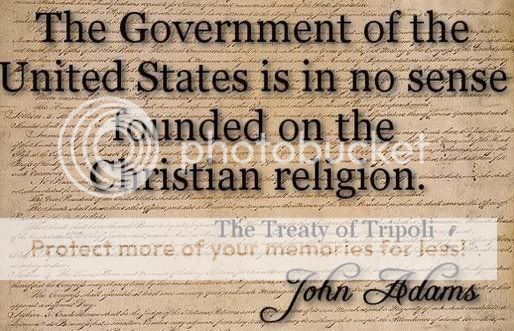Dick Tuck
Board Troll
- Aug 29, 2009
- 8,511
- 505
- 48
Believing with you that religion is a matter which lies solely between man and his God, that he owes account to none other for his faith or his worship
I contemplate with sovereign reverence that act of the whole American people which declared that their legislature should make no law respecting an establishment of religion, or prohibiting the free exercise thereof, thus building a wall of separation between church and State. Thomas Jefferson, letter to Danbury Baptist Association, CT


